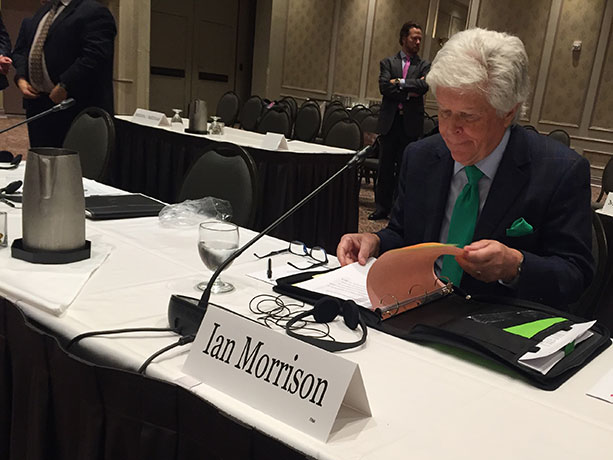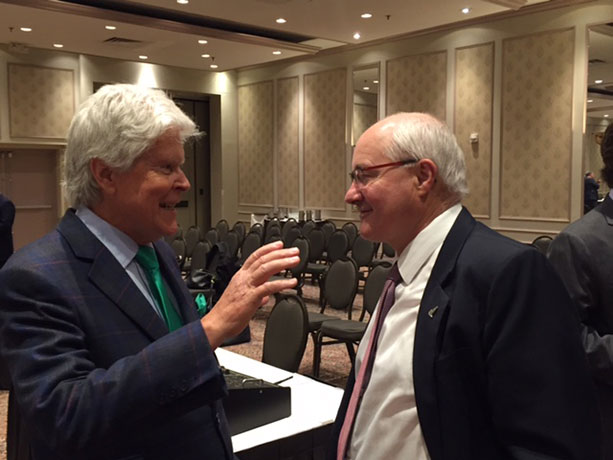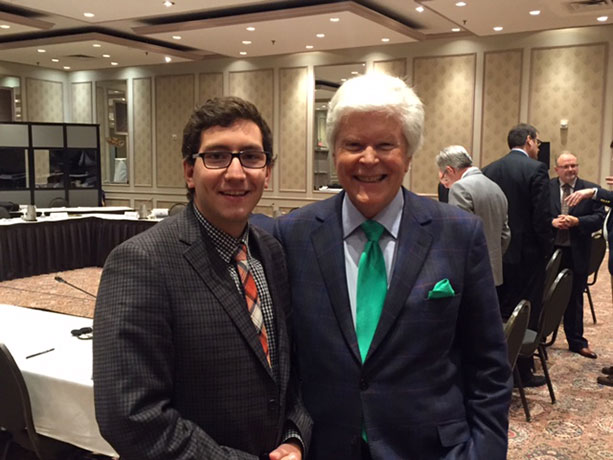Submission to the House of Commons Standing Committee on Finance
Remarks by FRIENDS' spokesperson, Ian Morrison, for the pre-budget consultation of House of Commons Standing Committee on Finance.
Mr. Chair and Members:
Thanks for granting FRIENDS of Canadian Broadcasting1 an opportunity to appear today. On August 5th, we submitted a brief with several ideas for Budget 2017.2 Today I want to focus on Section 19 of the Income Tax Act – deductibility of advertising expenses.
Recent changes in the advertising market threaten the future of Canadian media.
In the 1960s and 70s, Parliament recognized the threat of foreign media to the viability of Canadian media and introduced measures to prevent the deductibility of advertising expenditures in foreign-owned publications and broadcasters.
Section 19.1 was enacted in 1976. Its immediate result was to reduce Canadian ad spending on U.S. Border TV stations by $10 million dollars, about 10% of that year’s total TV ad buy. Since then – and until recently – Section 19 has underpinned the viability of Canadian media, keeping Canadian ad revenues largely in the hands of Canadian players.
Early this century internet advertising began to take off in the Canadian market, growing from a total of $562 million in 2005 to $5.6 billion projected in 2016:3

Today, more than $5 billion dollars of Canadian ad spending is going to foreign-owned internet companies – approximately one-third of major media ad spend. That’s 90% of Canadian digital advertising.

Section 19 provides that advertising expenses in newspapers and periodicals are deductible only if the ad is placed in an issue of a newspaper or publication that is edited and published in Canada, and is owned by a Canadian citizen or a corporation that is effectively owned by Canadians. Broadcast advertising expenses are not deductible if the ad is placed on a station or network whose content is controlled by an operator located outside Canada if the ad is directed primarily to a market in Canada.
In 1996 the CRA issued an opinion4 that a “web site is not a newspaper, a periodical or a broadcasting undertaking”. This opinion specified that the comments represented a current (1996) position only and might not indicate future views. It reflected the context of the internet twenty years ago, where web sites did not perform the functions of print media or broadcasting because of bandwidth limitations. And, of course, the only viewing platform then was the personal computer, as mobile smartphones and tablets did not exist.
While that CRA interpretation may have been appropriate for 1996 technology, it does not apply to current practice, where content is distributed over the internet to a wide range of devices, using a variety of technologies and program languages that enable video and audio. Where a 1996 web site could not provide broadcasting, newspapers and periodicals, the 2016 internet does. Hence a new interpretation of the Income Tax Act is required – one that acknowledges this reality.
The CRA noted that “newspaper” was not defined in the Act. It therefore drew its definition from a contemporary version of Webster’s Dictionary, as well as a 1935 court case. Its definition of “broadcasting” derived from various references in the Act, as no other definition was available in 1996.
Three years later, the CRTC, the body charged with interpreting the meaning of ‘broadcasting’ in Canadian law, defined broadcasting transmitted over the internet in its New Media Exemption Order. The Commission determined that broadcasting over the internet was indeed ‘broadcasting’, since the internet represented simply another form of telecommunication.5
Hence, the time has come for the CRA to update its interpretation and end the deductibility of ads placed on foreign-controlled digital platforms.
Doing so would respect the original intent of Section 19 by helping Canadian media – essential to our democracy and to our culture – at a time when they need it more than ever.
This proposal is unusual because it would boost the Consolidated Revenue Fund while defending Canadian media and hence, democracy.
– 30 –
For information: Jim Thompson 613 567 9592
1 FRIENDS is an independent watchdog for Canadian content on radio, television and online supported by 364,000 Canadians, and is not affiliated with any broadcaster or political party.
2 http://www.friends.ca/brief/14067
3 Internet Advertising Bureau (Canada) (IAB), 2015.
4 Income Tax Rulings and Interpretation Directorate, October 24, 1996.
5 The Commission notes that the definition of "broadcasting" includes the transmission of programs, whether or not encrypted, by other means of telecommunication. This definition is, and was intended to be, technologically neutral. Accordingly, the mere fact that a program is delivered by means of the internet, rather than by means of the airwaves or by a cable company does not exclude it from the definition of "broadcasting”. (para 38)

FRIENDS' spokesperson, Ian Morrison

The Honourable Wayne Easter - Chair, Standing Committee on Finance

Raj Grewal - Member, Standing Committee on Finance

Pierre-Luc Dusseault - MP
